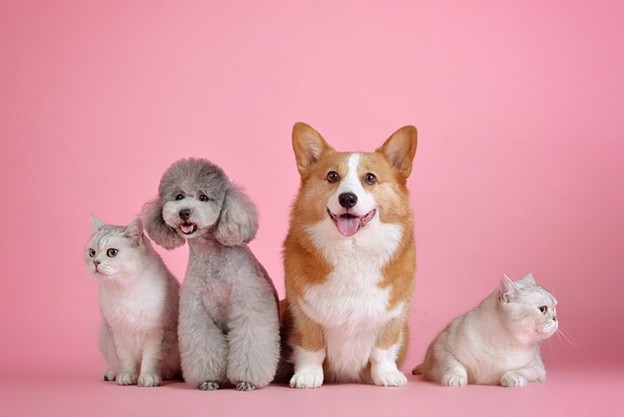
Our pets. They’re more than just animals; they’re family. They greet us with enthusiastic tail wags and comforting purrs, offer unwavering companionship, and fill our lives with unconditional love. From the playful antics of a puppy to the serene companionship of a senior cat, our furry, scaled, and feathered friends enrich our days in countless ways. But have you ever stopped to consider what would happen to them if you were no longer around to care for them?
While estate planning often focuses on the distribution of assets to human beneficiaries, it’s crucial for pet owners to extend their planning to include their beloved companions. Without proper arrangements in place, the future well-being of your pet could be uncertain, leaving them vulnerable and potentially causing significant distress to both them and your loved ones.
Gentreo, www.gentreo.com, understands the deep bond you share with your pets. That’s why incorporating provisions for their care into your estate plan isn’t just a thoughtful gesture – it’s a responsible act of love. This blog will explore two vital tools that can help ensure your pet’s continued care and happiness: Pet Trusts and Pet Powers of Attorney.
The Unspoken Needs: Why Standard Estate Plans Can Often Fall Short for Pets
Traditional estate planning documents, such as wills and general powers of attorney, may not adequately address the unique needs of your pets. While you might name a beneficiary in your will to inherit your pet, this arrangement has limitations:
- Lack of Enforceability: There’s no legally binding mechanism to ensure the designated beneficiary uses the inherited funds specifically for your pet’s care. They could, in theory, take ownership of your pet and then neglect their needs or rehome them.
- Delayed Access to Funds: Probate, the legal process of validating a will, can take time. During this period, there might be delays in accessing funds needed for your pet’s immediate care, such as food, vet bills, and grooming.
- No Specific Care Instructions: A will typically doesn’t provide a detailed framework for your pet’s daily routine, dietary needs, medical history, or preferred veterinary care. This lack of specific guidance can make it challenging for a new caregiver to seamlessly transition into providing the best possible care.
- Limited Long-Term Planning: A simple inheritance doesn’t offer a structure for ongoing, long-term care, especially if your pet has specific or costly medical needs.
These limitations highlight the necessity of specialized tools designed specifically to protect and provide for your animal companions.
Introducing the Pet Trust: A Dedicated Plan for Your Furry Friend’s Future
A Pet Trust is a legally binding arrangement created to provide for the care of your pet(s) in the event of your death or incapacitation. It’s a powerful tool that allows you to:
- Designate a Trustee: You choose a responsible and trustworthy individual or entity to manage the trust assets and ensure your pet’s needs are met. This person will have a fiduciary duty to act in your pet’s best interest.
- Allocate Funds: You can specify a certain amount of money or assets to be used exclusively for your pet’s care. This can cover expenses such as food, shelter, veterinary care, grooming, toys, and even enrichment activities.
- Provide Detailed Care Instructions: The trust document allows you to outline specific instructions regarding your pet’s diet, exercise routine, preferred veterinary clinic, grooming schedule, and any other unique needs or preferences. This ensures continuity of care and peace of mind knowing your pet’s routine will be maintained.
- Name a Caregiver: You can nominate a specific person or organization to be the caregiver for your pet. This ensures your beloved companion will be looked after by someone you trust and who is familiar with their needs. The trustee and caregiver can be the same person or different individuals, providing a system of checks and balances.
- Outline End-of-Life Care: You can even include provisions for your pet’s end-of-life care, ensuring they receive comfort and dignity in their final days.
- Establish a Remainder Beneficiary: The trust can specify what happens to any remaining funds after your pet’s passing. This could be a charitable organization or another individual.
Benefits of a Pet Trust:
- Legal Enforceability: Unlike a simple request in a will, a pet trust is legally binding, ensuring that the designated funds are used for your pet’s benefit.
- Dedicated Funds: The assets within the trust are specifically earmarked for your pet’s care, preventing them from being used for other purposes.
- Continuity of Care: Detailed instructions ensure your pet’s routine and needs are consistently met, minimizing disruption and stress.
- Peace of Mind: Knowing you have a plan in place for your pet’s future provides invaluable peace of mind.
Pet Power of Attorney: Planning for Temporary Incapacity
While a Pet Trust addresses long-term care in the event of your death, a Pet Power of Attorney is crucial for handling situations where you are temporarily unable to care for your pet due to travel, illness or injury.
A Pet Power of Attorney allows you to:
- Appoint an Agent: You designate a trusted individual to make decisions about your pet’s care on your behalf during your incapacity.
- Grant Specific Powers: You can specify the powers your agent will have, such as arranging for temporary care, accessing funds for their needs, and making necessary medical decisions.
- Provide Instructions: Similar to a Pet Trust, you can provide instructions regarding your pet’s routine, dietary needs, and preferred veterinary care to guide your agent.
Benefits of a Pet Power of Attorney:
- Immediate Action: It allows for immediate care arrangements to be made for your pet if you become temporarily incapacitated, preventing any lapse in their well-being.
- Avoids Uncertainty: Without a Pet Power of Attorney, there could be confusion and delays in determining who is responsible for your pet’s care during your absence.
- Ensures Familiar Care: You can choose someone who is already familiar with your pet’s needs and routines, minimizing stress for your animal companion.
Integrating Pet Trusts and Pet Powers of Attorney into Your Estate Plan
Ideally, a comprehensive estate plan for pet owners will include both a Pet Trust and a Pet Power of Attorney. The Pet Power of Attorney provides immediate protection in case of temporary incapacity, while the Pet Trust ensures long-term care and financial security for your pet after your passing.
Key Considerations When Creating Pet Planning Documents:
- Choosing the Right Trustee and Agent: Select individuals who are responsible, trustworthy, and genuinely care about your pet’s well-being. Consider their financial stability and willingness to take on the responsibilities.
- Funding the Trust Appropriately: Ensure the Pet Trust is adequately funded to cover your pet’s anticipated expenses for their lifetime. Consider factors such as their age, health, and potential medical needs.
- Providing Clear and Detailed Instructions: The more specific you are in your instructions regarding your pet’s care, the better equipped the trustee and caregiver will be to provide optimal care.
- Considering Successor Trustees and Caregivers: It’s wise to name one or more successor trustees and caregivers in case your initial choices are unable or unwilling to serve.
- Regularly Reviewing and Updating Your Plan: Your pet’s needs and your circumstances may change over time. It’s essential to review and update your pet planning documents periodically to ensure they still reflect your wishes and your pet’s current needs.
Gentreo: Empowering You to Protect Your Entire Family
At Gentreo, we understand that family comes in all shapes and sizes – and often includes furry, scaly, or feathered members. Our platform empowers you to create comprehensive estate planning documents, including provisions for your beloved pets. While we do not provide legal advice, our user-friendly tools and resources can help you consider the essential elements of a Pet Trust and Pet Power of Attorney, guiding you through the process of planning for their future security.
Protecting your pet’s well-being is an act of profound love and responsibility. By incorporating pet-specific planning into your estate, you can ensure their continued care, comfort, and happiness, providing peace of mind for yourself and a secure future for your cherished companion. Don’t wait – start planning for your furry family member’s future today with Gentreo.
Don’t wait until it’s too late; start your estate planning journey with Gentreo today. By doing so, you’ll not only protect your loved ones but also gain the peace of mind that comes with knowing your legacy is secure. Click HERE to join now.
This article is for informational purposes only and should not be considered legal advice. Consult with a qualified attorney or estate planning professional for personalized guidance.













